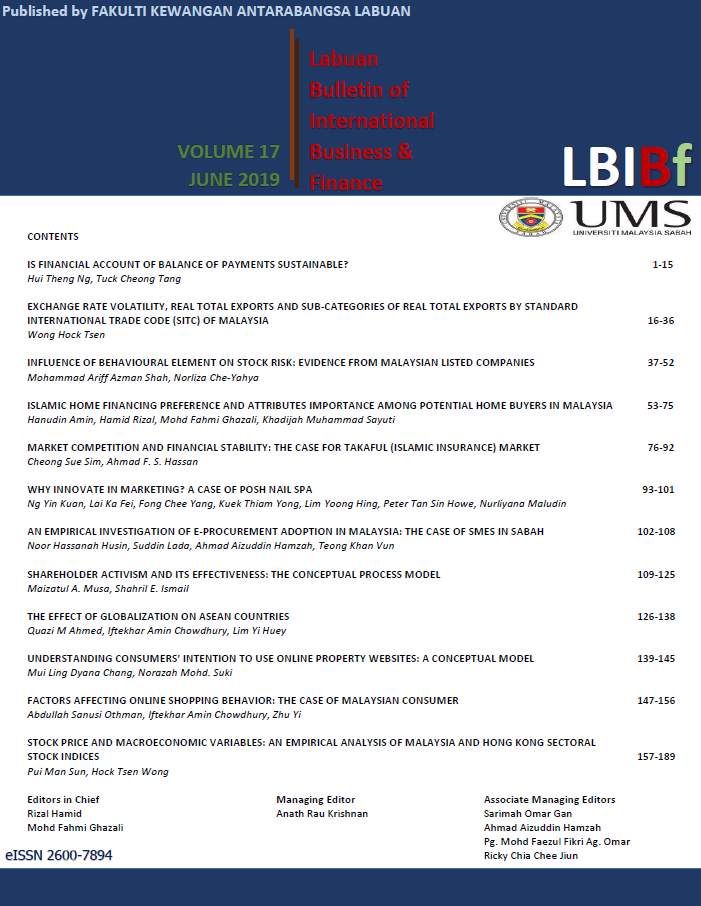STOCK PRICE AND MACROECONOMIC VARIABLES: AN EMPIRICAL ANALYSIS OF MALAYSIA AND HONG KONG SECTORAL STOCK INDICES
DOI:
https://doi.org/10.51200/lbibf.v17i1.1920Abstract
This study employs the autoregressive distributed lag (ARDL) bounds testing approach to investigate the relationship between sectoral stock indices and selected macroeconomic variables (overnight interbank interest rate, consumer price index (CPI), money supply M1, exchange rate and industrial production index (IPI)) in Malaysia and Hong Kong for the period of May 2000 to June 2017. The S&P 500 index is also included to capture its influence on these stock markets. The procedures performed include the unit root test, ARDL bounds test for cointegration, estimations of long-run coefficients and error correction model (ECM). For Bursa Malaysia, the results reveal that the sectoral indices of Finance, Property, Technology, Construction, Industrial Product, Plantation, Trading/Services and Consumer Product are cointegrated with the macroeconomic variables. For Hong Kong Stock Exchange (SEHK), the findings confirm the existence of cointegration between the stock index and macroeconomic variables only for the Finance, Properties and Construction, Information and Technology, Industrials, Materials, Consumer Goods and Conglomerates sectors. The magnitude and significance of the macroeconomic variables’ influences vary across sectors and are different between the two stock markets. Specifically, the long run influence of macroeconomic variables on sectoral stock indices is in overall more significant in Malaysia than in Hong Kong, suggesting that the SEHK is more efficient with respect to the influence of macroeconomic information.


















